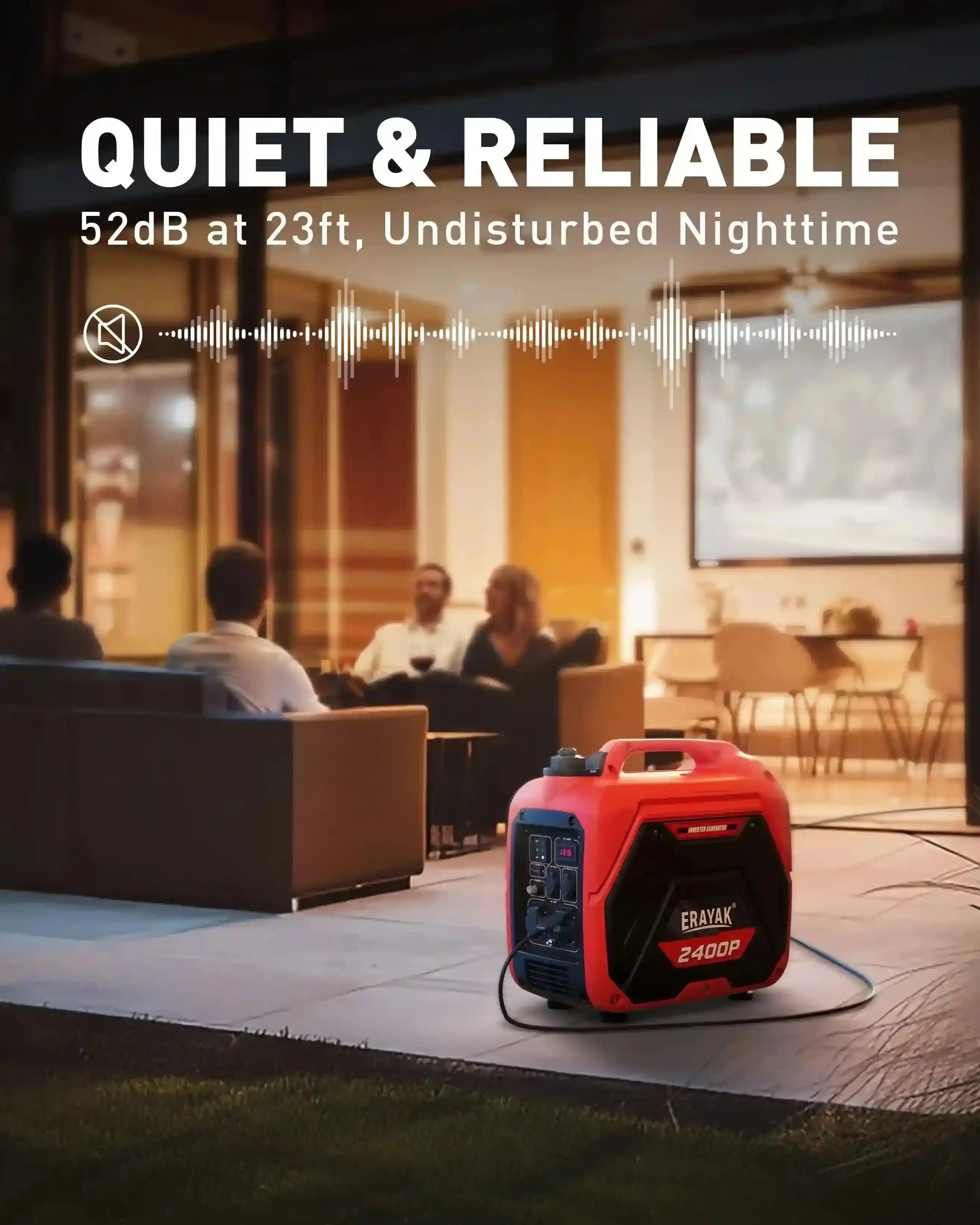In today's fast-paced world, having a reliable power source at home is essential. Whether you're a tech-savvy homeowner looking to integrate smart energy solutions, an eco-conscious product developer, or a consumer electronics retailer aiming to inform your customers, understanding the various types of home generators can significantly enhance your approach to power solutions.
This guide will delve into the best generators for home use, focusing on their features, benefits, and how they align with modern-day needs for efficiency, convenience, and sustainability.
Home generators are devices that convert mechanical energy into electrical power, providing backup electricity during outages or when additional power is needed. They come in various forms, each suited to different needs and preferences.
Types of Home Generators
- Portable Generators: These are versatile and can be moved to different locations as needed. They are ideal for temporary power outages and outdoor activities, providing a convenient power solution.
- Standby Generators: Also known as whole-house generators, these are permanently installed outside the home and automatically turn on during a power outage. They offer seamless power backup and are a popular choice for comprehensive home coverage.
- Inverter Generators: Known for their quiet operation and fuel efficiency, inverter generators are excellent for powering sensitive electronics. They adjust their engine speed based on the power demand, making them a smart choice for eco-conscious users.
- Propane Generators: These generators use propane as a fuel source, offering a cleaner alternative to gasoline. They are considered environmentally friendly and often have longer shelf life for fuel.
Key Features to Consider
When selecting the best generator for your home, several features should be taken into account:
Power Output
The power output of a generator determines how many appliances and devices it can support simultaneously. Assess your power needs by listing essential devices you would want to run during an outage. Generators are rated in watts, and choosing one with sufficient power output ensures uninterrupted functionality.
Fuel Type
Different generators run on various fuel types, including gasoline, propane, and natural gas. Consider the availability, cost, and environmental impact of each fuel type. Propane and natural gas are cleaner options that align with sustainability goals.
Noise Level
Noise level is a crucial factor, especially in residential areas. Inverter generators are typically quieter, making them ideal for homes with noise restrictions. Look for generators with a decibel rating to compare their noise output.
Portability
If mobility is a priority, a portable generator is the best choice. They come with wheels and handles for easy transport. Portable generators are perfect for outdoor events and emergencies where moving the unit is necessary.
Smart Features
Modern generators come with smart features such as remote monitoring and automatic shutdown. These features enhance convenience and ensure the generator operates efficiently and safely.
Top Generator Picks for Home Use
Best Standby Generator: Generac Guardian Series
Generac's Guardian Series is a top choice for home backup power. With its automatic transfer switch, it seamlessly powers your home during an outage. It runs on natural gas or propane, offering flexibility and reliability.
Best Portable Generator: Honda EU2200i
The Honda EU2200i is renowned for its quiet operation and fuel efficiency. Its compact design and lightweight build make it easy to transport, while its inverter technology ensures clean power for sensitive devices.
Best Inverter Generator: Yamaha EF2000iSv2
Yamaha's EF2000iSv2 offers superior noise reduction and fuel efficiency. It's perfect for eco-conscious homeowners who want a reliable power source without compromising the environment.
Best Propane Generator: Erayak 4500PD Series
The Erayak 4500PD Series features advanced dual-fuel technology, allowing it to run on either propane or gasoline. With seamless switching between fuels, it provides uninterrupted power and the flexibility to choose based on availability and cost. This makes it an ideal solution for RV owners and homeowners seeking reliable and versatile backup power.
Environmental Considerations
Eco-conscious consumers and developers are increasingly focused on reducing their carbon footprint. Opting for generators that utilize cleaner fuels like propane or natural gas can significantly lower emissions. Inverter generators, with their fuel-efficient technology, also contribute to a greener environment by reducing fuel consumption.
Integrating Smart Home Technology
For tech-savvy homeowners, integrating generators with smart home systems can enhance convenience and efficiency. Some modern generators offer connectivity options that allow you to monitor and control them remotely via smartphone apps, ensuring you're always in control, even when you're not at home.
Conclusion
Choosing the best generator for your home involves understanding your power needs, environmental considerations, and the specific features that match your lifestyle. Whether it's a quiet inverter generator for sensitive electronics, a robust standby unit for full-home coverage, or an eco-friendly propane generator, there's a solution tailored to your requirements.
Investing in the right generator not only ensures peace of mind during power outages but also aligns with modern demands for efficiency, convenience, and sustainability. By selecting a generator that complements your home's needs, you're not just enhancing your power capability—you're also contributing to a more resilient and environmentally friendly future.






